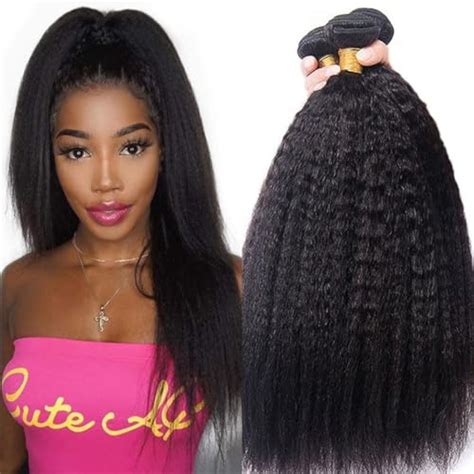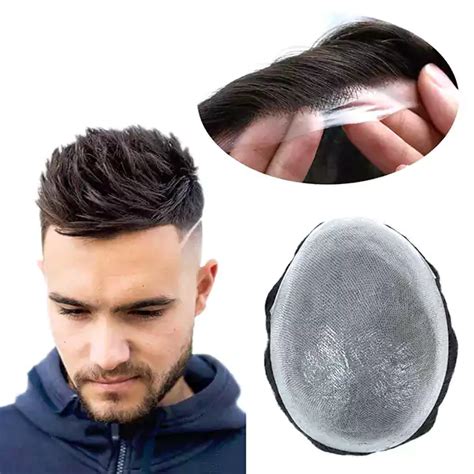Introduction
In the realm of personal grooming, hair plays a pivotal role in shaping a man’s identity and confidence. For those experiencing hair loss, thinning, or balding, hairpieces offer a discreet and effective solution to restore a fuller, more youthful appearance. This comprehensive guide delves into the world of hairpieces for men, exploring their benefits, types, and best practices to help you make informed decisions about your hair restoration journey.

The Rise of Hair Loss: A Growing Concern
According to the American Hair Loss Association, approximately 50% of men experience some degree of hair loss by the age of 50. Androgenetic alopecia, also known as male pattern baldness, is the most common cause, affecting up to 80% of men. While genetic factors play a significant role, lifestyle factors such as stress, poor diet, and hormonal imbalances can also contribute to hair thinning and loss.
The Benefits of Hairpieces for Men
Hairpieces provide numerous advantages for men seeking to address hair loss:
- Enhanced Appearance: Hairpieces restore a fuller, more youthful appearance, concealing hair thinning or baldness.
- Increased Confidence: A fuller head of hair can boost self-esteem and confidence in social and professional settings.
- Concealment of Scars: Hairpieces can effectively conceal scars or other imperfections on the scalp.
- Quick and Effective: Unlike hair transplantation, which can take months or years to achieve results, hairpieces offer immediate volumization.
- Customizable: Hairpieces can be tailored to match your natural hair color, texture, and style, creating a seamless and realistic look.
Types of Hairpieces for Men
Hairpieces vary in design, materials, and attachment methods. Here are the most common types:
1. Toupees
Toupees are semi-permanent hairpieces designed to cover the top portion of the scalp. They are typically made of human or synthetic hair and are attached using adhesive or clips.
2. Hair Systems
Hair systems are full-coverage hairpieces that extend from the hairline to the nape of the neck. They offer the most realistic and undetectable look and are attached using a combination of adhesives, clips, and bonding agents.
3. Partial Hairpieces
Partial hairpieces, also known as hair toppers, cover specific areas of the scalp, such as the crown or front hairline. They are ideal for men with localized thinning or receding hair.
4. Lace Hairpieces
Lace hairpieces use a thin, transparent lace base to create a natural-looking hairline. They are lightweight and breathable, making them comfortable to wear for extended periods.
Choosing the Right Hairpiece for Your Needs
Selecting the appropriate hairpiece depends on your individual needs and preferences. Consider the following factors:
- Hair Loss Pattern: Determine the areas of hair thinning or baldness that you wish to cover.
- Personal Style: Choose a hairpiece that complements your natural hair color, texture, and style.
- Lifestyle: Consider your daily activities and the level of comfort and maintenance you prefer.
- Budget: Hairpieces vary in price depending on the materials, design, and attachment method.
Best Practices for Wearing Hairpieces
To ensure a natural-looking and comfortable experience, follow these best practices when wearing hairpieces:
- Proper Attachment: Use the appropriate adhesives or bonding agents recommended by the manufacturer.
- Regular Maintenance: Clean and style your hairpiece regularly to maintain its appearance and longevity.
- Scalp Care: Keep your scalp healthy by using gentle shampoos and avoiding excessive scratching.
- Professional Styling: Consult with a hairstylist experienced in working with hairpieces to achieve a seamless blend with your natural hair.
- Removal: Remove your hairpiece at night or as directed by your doctor to prevent scalp irritation.
Innovations in Hairpieces
The advancement of technology has introduced innovative materials and techniques in hairpiece design:
- Nanofiber Hair: Nanofiber hair is ultra-fine and lightweight, creating a more natural and undetectable look.
- Bio-Integrated Hair Integration: This technique combines hairpieces with micro-dermal implants, providing a permanent and highly secure attachment.
- 3D Printing: 3D printing technology allows for the production of custom-fit hairpieces that precisely match the contours of the scalp.
Case Studies: Real-Life Transformations
From restoring the confidence of professionals to empowering cancer survivors, hairpieces have transformed countless lives:
- John, 45: “My hairpiece has given me back my youthful appearance. I feel more confident in my career and social life.”
- Sarah, 32: “My hair system has concealed my alopecia with undetectable results. It has allowed me to embrace my femininity and live a fulfilling life.”
FAQs About Hairpieces for Men
-
How long do hairpieces last?
– The lifespan of a hairpiece depends on the materials, maintenance, and wear frequency. On average, high-quality hairpieces last for 6-12 months. -
Can hairpieces be washed and styled?
– Yes, hairpieces can be washed and styled just like your natural hair. However, use gentle shampoos and conditioners and avoid excessive heat styling. -
Are hairpieces noticeable?
– With modern materials and attachment methods, high-quality hairpieces are virtually undetectable when worn correctly. -
Can I sleep in a hairpiece?
– It is generally not recommended to sleep in a hairpiece as it can put pressure on the bonding area and cause scalp irritation. -
How much do hairpieces cost?
– The cost of hairpieces varies widely depending on the type, materials, and attachment method. It typically ranges from a few hundred dollars to several thousand dollars. -
Who is a good candidate for a hairpiece?
– Hairpieces are suitable for men who experience hair loss, thinning, or balding and desire a non-surgical solution to enhance their appearance. -
Can I wear a hairpiece if I have allergies?
– Yes, hypoallergenic hairpieces made from synthetic materials or treated human hair are available for individuals with allergies. -
How do I find a reputable hairpiece provider?
– Research reputable clinics or salons specializing in hair restoration. Read reviews, consult with multiple providers, and consider their experience and certifications.
